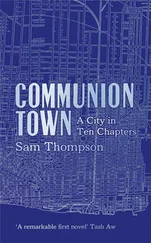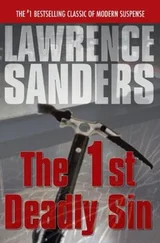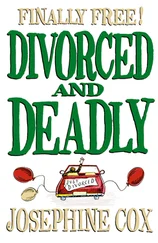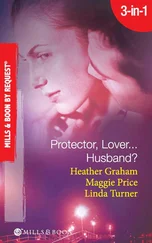Frank Tallis - Deadly Communion
Здесь есть возможность читать онлайн «Frank Tallis - Deadly Communion» весь текст электронной книги совершенно бесплатно (целиком полную версию без сокращений). В некоторых случаях можно слушать аудио, скачать через торрент в формате fb2 и присутствует краткое содержание. Жанр: Исторический детектив, на английском языке. Описание произведения, (предисловие) а так же отзывы посетителей доступны на портале библиотеки ЛибКат.
- Название:Deadly Communion
- Автор:
- Жанр:
- Год:неизвестен
- ISBN:нет данных
- Рейтинг книги:3 / 5. Голосов: 1
-
Избранное:Добавить в избранное
- Отзывы:
-
Ваша оценка:
- 60
- 1
- 2
- 3
- 4
- 5
Deadly Communion: краткое содержание, описание и аннотация
Предлагаем к чтению аннотацию, описание, краткое содержание или предисловие (зависит от того, что написал сам автор книги «Deadly Communion»). Если вы не нашли необходимую информацию о книге — напишите в комментариях, мы постараемся отыскать её.
Deadly Communion — читать онлайн бесплатно полную книгу (весь текст) целиком
Ниже представлен текст книги, разбитый по страницам. Система сохранения места последней прочитанной страницы, позволяет с удобством читать онлайн бесплатно книгу «Deadly Communion», без необходимости каждый раз заново искать на чём Вы остановились. Поставьте закладку, и сможете в любой момент перейти на страницу, на которой закончили чтение.
Интервал:
Закладка:
‘Mmmm …’
‘What?’
‘These tiles …’
‘What about them?’
‘They’re very clean.’
‘So?’
‘And there’s nothing in here. Nothing has been stored. Doesn’t that strike you as odd?’
‘I don’t see-’
‘Max,’ interrupted Rheinhardt. ‘Be a good fellow and get me a jug of water and a knife from the kitchen.’
‘I beg your pardon?’
Rheinhardt was now on all fours, crawling towards the nearest wall, his nose alarmingly close to the floor.
‘A jug of water and a knife.’ Rheinhardt repeated. ‘I saw a striped green jug standing in the sink. The knife needn’t be sharp, but the blade should be strong.’
Liebermann left — somewhat bemused — to do Rheinhardt’s bidding. When he returned, the inspector was standing in the middle of the cellar, deep in thought.
‘Oskar?’
Rheinhardt took the knife from Liebermann, put it in his pocket, and then showed his readiness to receive the jug. It was heavy and some water swept over the rim, splashing his shoes.
‘If you would stand by the door, please?’ said Rheinardt.
Liebermann took a step back.
Rheinhardt tipped the jug and a thin braid of water twisted to the floor. When he had created a small puddle, he stopped and observed how under the influence of gravity the water sought the path of least resistance. A silver tendril thickened and flowed towards the groove between two adjacent tiles. Rheinhardt canted the jug again and watched as the rivulet accelerated down the channel, diverting abruptly into another as it obeyed the discipline of the floor’s gradient.
‘What are you doing?’ asked Liebermann. He sounded a little irritated.
‘Determining the lowest point in the cellar.’
‘To what end?’
Rheinhardt poured more water and smiled.
‘Have you heard, by any chance, of Gustav Mace?’
‘I’m afraid not.’
‘Over thirty years ago a man called Desire Bodasse was murdered and dismembered. His body parts were discovered washed up on the banks of the river Seine. Gustav Mace — the detective involved in the case — suspected one of Bodasse’s friends, a man called Pierre Voirbo. Mace believed that if he was correct and Voirbo was the killer, then the villain had most probably committed the murder and dismemberment in his own private lodgings. When the great detective arrived he found no traces of blood. Everything was spotlessly clean. Too clean, Mace thought. He subsequently asked for some water, which he proceeded to pour onto the floor. If Bodasse had been dismembered in Voirbo’s lodgings, then his blood would have drained beneath the tiles, accumulating at the lowest point in the room.’
About half a metre from the wall, the rivulet had begun to feed a second puddle. The water collected, revealing the presence of a slight depression.
‘There it is,’ said Rheinhardt. ‘The lowest point.’
Rheinhardt placed the jug on the floor and, kneeling by the second puddle, he brushed the water away with his hand and removed the knife from his pocket. He pushed the blade between two tiles and worked one of them loose. Turning it over, he inspected the underside. A layer of pale adhesive was caked with dried blood. He held it up to show Liebermann.
The young doctor came forward.
‘You were right, Max,’ said Rheinhardt. ‘Something very bad did happen here. Something very bad indeed.’
45
The carriage deposited them outside the Schottenring police station. Rheinhardt and Liebermann entered the building and without exchanging words or glances ascended the stairs to the inspector’s office. Rheinhardt sat behind his desk and removed a stack of forms from one of the drawers. He picked up his pen and prepared to take a statement from his friend, but was distracted by the sweet fragrance of his wife’s baking. Reaching to the back of the drawer, he found the box of Linzer biscotten, which he took out and pushed towards Liebermann.
‘Else made them.’
‘In which case …’
Liebermann bit through the thick, brittle crust of icing. The shortbread crumbled and he had to perform some complex manoeuvres to stop jam from dropping onto his trousers.
‘She makes them in the shape of hearts. Do you think that says anything about her character?’
Liebermann drew back a little.
‘Are you really asking me to analyse your wife’s choice of pastry cutter?’
‘I was just wondering — that’s all.’ Rheinhardt acknowledged his friend’s censorious look and, pushing the final quarter of his own biscuit into his already crowded mouth, picked up the pen again. ‘Let us begin. However, I trust that when expressing the ideas that guided your thinking — the ideas that we discussed earlier — you will make allowances for the layman.’
‘Of course.’
‘Moreover, I think that it would be preferable if you avoided the use of certain technical terms. Such as …’ Rheinhardt’s tired eyes made a tacit but eloquent plea ‘… infant sexuality?’
‘Rest assured, I will do my best to eschew language that might cause offence.’
‘Thank you.’
Liebermann loosened his necktie.
‘Herr Norbert Erstweiler is currently a psychiatric inpatient at the General Hospital. He was referred to the department by his general practitioner, Doctor Vitzhum, after reporting insomnia, agitation, and feelings of dread.’
‘A little slower, please.’
‘Oh, I’m sorry.’
Rheinhardt looked up from his writing.
‘Go on …’
‘I saw him for the first time during a ward round with Professor Pallenberg on Friday the fourth of April and undertook my own assessment on Sunday the sixth of April.’
Liebermann continued, but was obliged to stop when Haussmann appeared. The young man’s head craned around the edge of the door.
‘Sir?’
Rheinhardt produced a prodigious sigh.
‘What is it?’
‘Herr Loiberger’s downstairs — just arrived. He wants to see you. He says it is a matter of the utmost importance.’
‘Herr Loiberger?’
‘The gentleman who-’
‘Yes, yes,’ interrupted Rheinhardt. ‘I know who he is!’ After a pause of considerable length, during which the pouches of loose skin beneath Rheinhardt’s eyes seemed to sink yet further down his cheeks, the inspector said: ‘Oh, very well. Go and get him.’ Turning to address Liebermann, he added: ‘You might as well stay here.’ He offered his friend another biscuit in order to justify taking another one himself. ‘When Loiberger arrives, take a good look at him. He bears a striking resemblance to Franz Schubert.’
After the biscuits had been consumed a silence ensued, which Liebermann relieved by humming.
‘Not that,’ said Rheinhardt, brushing some crumbs into a bin. ‘If Herr Loiberger hears, he’ll think you’re mocking him.’
Liebermann suddenly realised he had been humming the introductory theme of Schubert’s B minor ‘Unfinished’ Symphony.
‘I’m sorry, Oskar’ said Liebermann. ‘The melody just came into my head. It was quite unconscious.’
Rheinhardt moved the biscuits out of view as soon as he detected the steady beat of approaching footsteps. The door opened and Haussmann ushered Loiberger into the office. Rheinhardt stood to greet the coffee-house proprietor.
‘Herr Loiberger. Haussmann, please get Herr Schu- do get Herr Loiberger a chair.’ The inspector covered his mouth in an effort to convince everyone present that his slip was nothing more than a cough. ‘Please take a seat,’ he added, clearing his throat, and anxious to carry the conversation forward. ‘Permit me to introduce a colleague, Herr Doctor Liebermann.’
Читать дальшеИнтервал:
Закладка:
Похожие книги на «Deadly Communion»
Представляем Вашему вниманию похожие книги на «Deadly Communion» списком для выбора. Мы отобрали схожую по названию и смыслу литературу в надежде предоставить читателям больше вариантов отыскать новые, интересные, ещё непрочитанные произведения.
Обсуждение, отзывы о книге «Deadly Communion» и просто собственные мнения читателей. Оставьте ваши комментарии, напишите, что Вы думаете о произведении, его смысле или главных героях. Укажите что конкретно понравилось, а что нет, и почему Вы так считаете.












